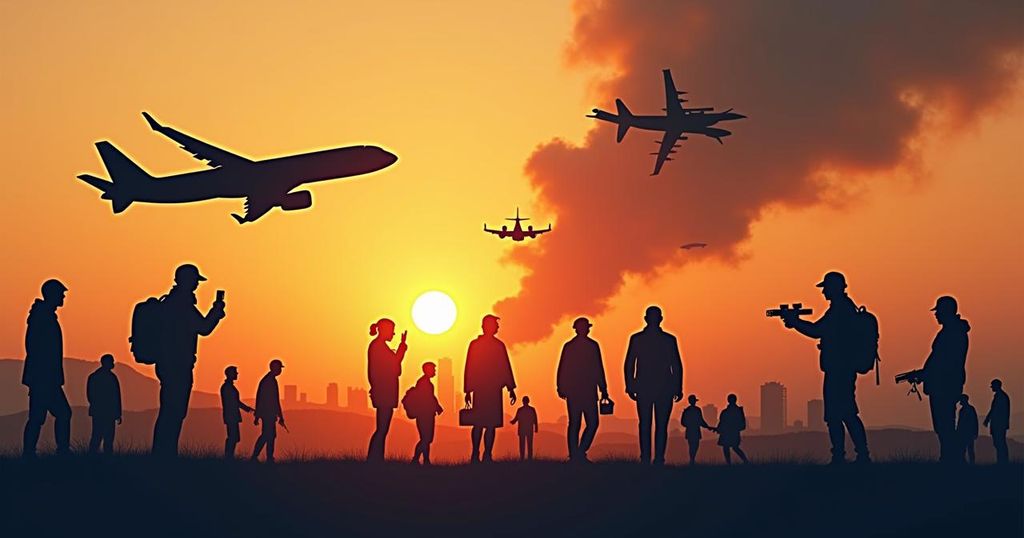Israel has intensified airstrikes in Lebanon and Gaza, leading to significant civilian displacement and international condemnation. The ongoing military operations have resulted in numerous casualties and raised humanitarian concerns. UN officials are urging for a ceasefire as violence escalates, affecting Palestinian refugees and exacerbating the humanitarian crisis in the region.
In recent days, Israel has intensified its military operations, launching substantial airstrikes on Lebanon’s capital, Beirut, and northern Gaza. Israeli forces reported targeting a former school in northern Gaza, alleging it was utilized by Hamas to orchestrate attacks against Israeli troops. Despite claims of minimizing civilian harm, Israel’s actions have faced widespread international condemnation, with investigations into potential genocide being carried out by the UN’s World Court. The conflict has led to significant displacement, with approximately 20,000 Palestinian refugees forced to flee within Lebanon due to Israeli strikes. The United Nations Relief and Works Agency (UNRWA) has opened emergency shelters for over 4,300 displaced individuals, with capacity concerns as the military offensive escalates. Simultaneously, strikes on the Gaza Strip have displaced around 1.9 million residents, comprising 90 percent of the enclave’s population. In Iran, Ayatollah Ali Khamenei has awarded a prestigious military honor to a commander of the Islamic Revolutionary Guard Corps (IRGC) for a recent missile strike targeting Israel. Concurrently, reports have emerged of explosions in Syria linked to Israeli missile strikes on an automotive factory and other locations. The military exchanges between Israel and Hezbollah have been ongoing since Hamas initiated a deadly assault against Israel nearly three weeks ago. Israel has confirmed the death of a Hezbollah commander in an air strike, who was implicated in a previous deadly incident involving an anti-tank missile. In the humanitarian sphere, Filippo Grandi, the head of the UN’s refugee agency, has called for a ceasefire in Lebanon, emphasizing the urgent need for airstrikes to halt. Following visits to displaced families in Beirut, he stated that international support for humanitarian efforts is essential to assist those affected by the violence.
The current escalation of violence represents one of the most severe outbreaks of conflict in the region, exacerbated by long-standing tensions and historical grievances rooted in the establishment of Israel in 1948 and subsequent developments. The ongoing situation has been characterized by clashes between Israeli forces and militant groups, including Hamas and Hezbollah. The humanitarian implications are dire, with thousands displaced and critical infrastructure suffering extensive damage. The UN’s role in investigating potential war crimes and providing humanitarian aid underscores the international community’s response to the crisis. Hamas’s activities, linked to significant military responses from Israel, particularly around key locations such as schools, have raised serious ethical questions regarding civilian safety and rights amidst warfare. Furthermore, statements from Iranian leaders and other regional actors contribute to the larger geopolitical landscape influencing the conflict.
In summary, the recent military confrontations between Israel and Palestinian groups, alongside regional instability affecting Lebanon and Syria, have led to considerable displacement and humanitarian crises. Calls for a ceasefire and international humanitarian assistance are paramount as the situation escalates. The actions taken by various military actors and the subsequent international reactions signal a deepening conflict with historical roots that continues to impact the lives of civilians caught in the crossfire.
Original Source: www.aljazeera.com







